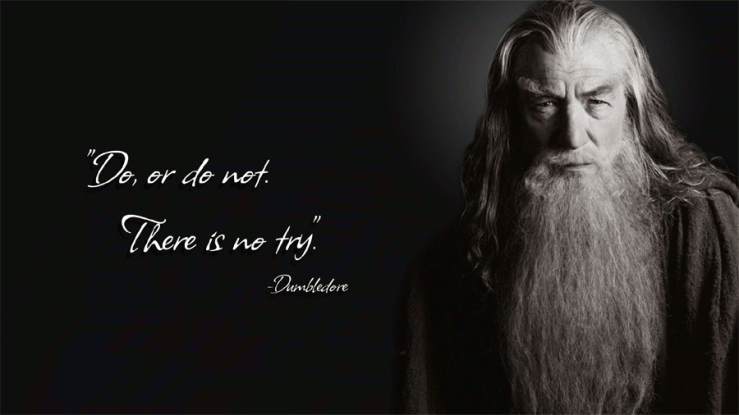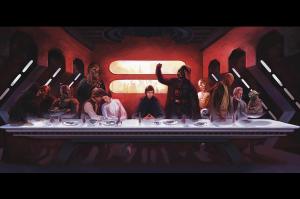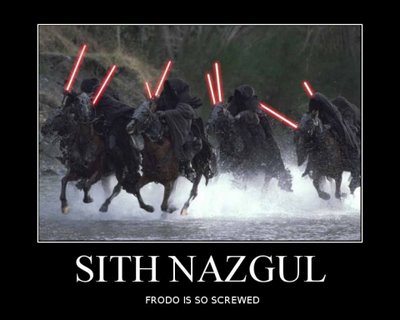Introduction
People on the internet like to fight over things. Anything really. Scientists cannot discover aspects of the universe as fast as people can quickly decide which side they are on and that the other side is an affront to human decency. Go on a web site discussing beach towels, and there’s a good chance somewhere in user comments Tanbaby1138 and Sunofthebeach69 are going back and forth about the design, color arrangement, or general comfort of any given towel. They probably update their browser hourly to see if their fellow combatant has posted anything new in their battle of wits. There’s always going to be really cynical, really angry people on the internet. They need to be that way because it’s their domain, and without strict, sometimes despotic rule, what’s the fun of having a domain? The thing that’s wonderful about the internet is that it’s just one more opportunity for people to claim metaphorical knighthood and fight their dragons, whether they want to do it literally on WoW (is that what people do on WoW?) or figuratively by pretending to be intellectuals (there’s also the crowd who does it by getting ignorant 60 year old grandmothers to download viruses). Businessmen get to abuse the marketplace. Politicians get to abuse the government. Why can’t these people have a place where they can exercise their God-given right to be powerful and abusive?
Regardless, long after our culture has gone and our paper books have decayed, comments on the internet may still remain. This is the worst possible thing that could happen. Why? Because none of these arguments are long enough. Anything, when elaborated upon long enough, becomes intelligent. The issue with our discourse isn’t a messed up set of priorities or a clear inability to empathize with fellow man. It’s that nobody has taken this flame war thing as far as it obviously needs to go in order to work. OBVIOUSLY if you elaborate clearly and succinctly every detail of your belief, taking only small pot shots at the opposition along the way, the other side will have to see the error in their logic and bow down to your objectivity. Just look at that crazy essay response to the Red Letter Media guy who makes those hilarious video reviews of the Star Wars prequels. RLM’s reviews were like 90 minutes long. And so the other guy’s essay was like 108 pages long. Obviously the essay guy won, if for no other reason than I’m sure most people would rather admit defeat than actually have to read that. The real mistake Red Letter Media guy made was that his reviews were entertaining, thus compelling us to actually pay attention. It’s like how Roosevelt spent a lot of money to get America out of the depression, but it took a greater commitment to spending motivated by a unified movement against a tyrannical monster threatening the world as we know it to really get things moving again. The moral of the story? We need to spend more. More of our time, energy, and resources. If it’s worth doing it’s worth doing well, and it’s worth doing in the exact same way we would do it if we were fighting Hitler.
And clearly it is worth doing. Why would millions upon millions of people waste so much of their short, precious lives glued to their screens, transfixed in debates over Justin Bieber, Twilight, religious semantics, etc. unless it actually meant something? That would be so depressing. Why by that very evidence, this cannot possibly be just a war over pop culture fads. At the core here is the very battle of good vs. evil. And if there’s one thing we’ve been told, be us people of faith or science, our side is always very clearly right, hence good. You know who you are. You’ve fought the good fight. Those heathens have worked so hard to subvert the common people and uproot rational, critical, or moral thought as we very well know it. But you’ve toed a hard line, refusing to be fooled by their lies. Heck, you’ve refused to even listen any more than you need to shoot back a brilliant retort or respond point by point with the exact same things you’ve always been saying (if it ain’t broke, I say you are ENTITLED not to fix it). Well, let me be the first to say, well done good and faithful servant. But let me take over from here. Because clearly if you’ve agreed with my every point up until now, then you must know exactly what I am talking about. Clearly I am referring to how much better The Lord of the Rings movies are than the Star Wars movies. If you weren’t tracking there, or if you refuse to admit the superiority of a far more award-winning, critically acclaimed franchise, then prepared to be wowed. What will follow is the most comprehensive analysis of this debate ever conceived.
Concerning Nerds…

According to the internet, Dr. Seuss invented the word “nerd” in 1950. This sounds right. Some guy who wasn’t really a doctor and couldn’t really draw, writing and animating books primarily for children which are constantly enjoyed and quoted by adults; yep, that sounds like the perfect uterus from which to burst forth in all its sticky afterbirth the oversized, veiny, gelatinous crest of the child we know as the modern nerd. Of course, Seuss just coined the word, and out of context at that. The original nerd emerged whenever story did. As God is responsible for that, as well as black holes, the tyrannosaurus rex, and the aliens who helped build the pyramids, I suppose we could call Him the first nerd. Maybe not. Either way, 1950 seems like a good date to begin our story, because not long after that (1954 to be precise) J.R.R. Tolkien finished the first part of his epic fantasy narrative The Lord of the Rings. Whatever the nerd had been before that – if ever the lazier peasants posted theses on the church doors about whether Lancelot or Robin Hood would win in a fight or a few introverted Greeks skipped the olympics to trade Zeus and Poseidon cards – the whole enterprise changed with Tolkien. Here was a guy who actually spent years developing and conceiving his very own complex world. Not our world with minor additions (like Lovecraft or Wells) or merely a contrived, idealized extension of reality (ahem, Avatar, ahem), his world was complex with its own histories and languages and physics and laws and religions, all of which he actually made up in his head. It was a world so big you could easily get lost in it, and furthermore (perhaps most importantly) it was a world where the celebrated heroes were short, squatty fellows with hairy feet who wrote and sang poetry, read a lot, talked to trees, wore capes, and hung out in the woods playing swords with a group of nine guys without any female interaction at all for months on end. That’s like putting up a big sign on the door saying, “Nerds Welcome!”
J.R.R. Tolkien died in 1973, not one month after a young American filmmaker named George Lucas released his first major hit American Graffiti. Sure that’s a stretch, but I had to tie these two together somehow. Maybe American Graffiti was the last movie Tolkien saw before he died. In fact, I’m sure that was the case. We have no way of knowing (please don’t research that). Anyway, just as Tolkien was a member of the “Inklings” at Oxford with C.S. Lewis, Charles Williams, and others, Lucas was a member of “The Dirty Dozen” at USC with Walter Murch, Robert Zemeckis, and others. Also like Tolkien, Lucas was a student of myth, admitting Star Wars was heavily influenced by Joseph Campbell’s 1949 “The Hero with a Thousand Faces.” Both Campbell and Tolkien were contemporaries well-aware of each other’s works, and both published historic discussions on the origin and deep, perhaps spiritual power of myth (see, there are some legitimate parallels that can be drawn here). It was this power that, while always present in many popular works, gained widespread discussion and analysis in the early 20th century from writers like Tolkien, Campbell, Jung, Freud, Lewis, and Nietzshe. To date, the two most popular commercial examples of original, modern myth are Tolkien’s The Lord of the Rings and Lucas’s Star Wars. Which brings us back to nerds, who in essence are semi-religious followers of these mainstream myths.
As everyone discovers when they turn about 8, real life is really, really boring. A lucky man only has a handful exciting things happen in his life, and between those he spends a lot of time reminiscing and waiting. To go anywhere cool requires hours of travel, and even when you get there you spend a lot of time sleeping, traveling, and waiting. Getting a great job means years of running the rat race and clawing to the top, and that’s no guarantee the job will ever come. It’s like raking a crab over for like half an ounce of meat or watching four hours of football for twenty minutes of real gameplay. What can men do? Try to find meaning in the journey or embrace the moment and make sure those things we’re moving towards in life are really worth the time we’re spending? Are you kidding? That’s just impractical. What if everybody did that? What would we have then? Huh? Huh?
Anyway, more than boring, real life is depressing. Good people die and bad people live. People in one country eat til they’re overweight while people in another can’t even get enough food to keep their kids alive (not naming any names). Wouldn’t it be nice to withdraw to a place where all that horrible boring and depressing evil were condensed into bodies, dressed up like stormtroopers, and then we got to shoot them? (without any real risk to ourselves, of course) Such an ideal place, completely fake though it may be, would almost be worth escaping to forever. When the Tolkiens and Lucas’s of the world create vast alternate realities, its very tempting to just fill them and make them our own. Amazingly, this is what people have done. Equally amazing, rather than traveling to all sorts of alternate worlds for a much broader experience in the minds of countless authors and thinkers, many people hold up in only a handful of places and use them, much in the same narrow-minded, short-sighted way they used the real world. Fortunately, then the internet arrived and everybody could have their voice heard in a massive community, which effectively fixed all of that.
Star Wars and The Lord of the Rings were able to coexist for a good quarter century. One was a book. One was a movie. It seemed like an ideal arrangement. But then some jerk named Peter Jackson showed up and screwed with all that. But wait. I am getting ahead of myself. First there was another jerk who screwed with things. You see, in the years following Star Wars, George Lucas presumably went a little loopy. That crazy ambitious USC film student rocketed to the top of the charts less than ten years after graduating, and presumably ever since then he’s longed to go back to the bottom again. He took his most beloved works and plastered CGI dewbacks into shots where they were nowhere near appropriate or aesthetically pleasing. Then, if that wasn’t bad enough, he took his millions and made Star Wars Episode I. And even after that, fans insisted on giving the man money. He made Episode II. They still gave him money. Episode III, the same. Then The Clone Wars. And all the while he signed off on books like that Glove of Darth Vader one that I accidentally read in third grade. And still, fans refuse to let him do what he clearly wants, which is dump his money into a giant landfill, burn it, and start from the bottom making experimental college films again. Anyway, while this was going on, that jerk Peter Jackson decided that he didn’t want to make gory horror films for the Kiwis, and it wasn’t fair that James Cameron made a billion dollars off Kate Winslett when Jackson found her first. And so Peter Jackson started making The Lord of the Rings movies. But because he was a jerk, rather than adhere to general Hollywood procedure of big budget mediocrity, Jackson spent years upon years upon years researching and creating a ridiculously vivid Middle Earth. And then he released all three films to critical acclaim and commercial success, and people started suggesting that maybe The Lord of the Rings was the greatest film trilogy of all time.
Well, that didn’t please the Star Wars fans. Particularly Kevin Smith, the self-proclaimed King of the Nerds. Smith is a professional Twitter troll who occasionally makes films. He also clearly idolizes Lucas because of his repeated attempts to mirror the man’s career trajectory. Smith was a young filmmaker who in 1994 made a movie about nerds that struck a chord with a very specific fanbase, and he’s been out to make them regret that ever since. Anyway, in his clever, tasteful way, Smith made comments about The Lord of the Rings suggesting it would have been better if Jackson had made the ending a porno; his most scathing criticism of the series being that they are just movies about “walking.” The full comments are on youtube, although they’re very, very NSFW. Anyway, Smith has a wide following. Likewise, his eye sees all. Seriously, I think he google searches for negative uses of his name and there’s a very real chance he’s going to read this blog. And if that happens, watch out. Gird your loins, because you are going to see fury unleashed the likes of which you Christian collegiates have never witnessed. But I hope they show up. Because this is the point where I insert my own name into the tale. Because when they read what is below, there will be so much converting going on here it would make Billy Graham blush. Here is my moment of glory. You hear that Smithies? Get ready to bow before your maker; John Ronald Reuel Tolkien.

To be continued…


